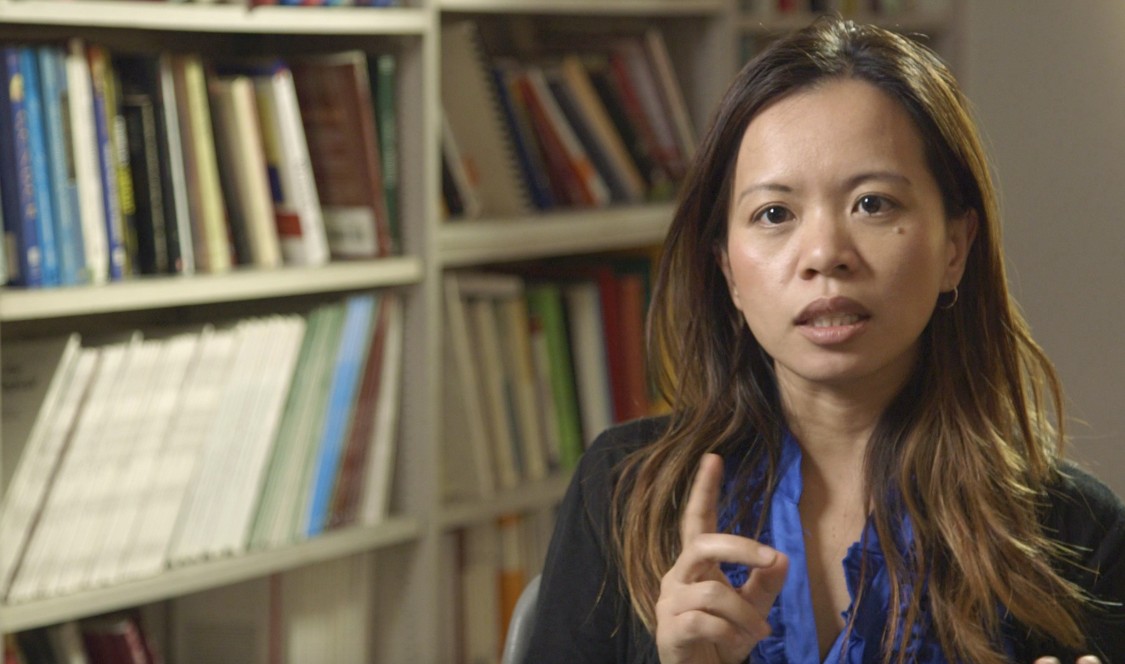Claremont McKenna College has received a RAPID grant from the National Science Foundation to study the effects of the coronavirus pandemic on families with young children. The project, which places CMC at the forefront of COVID-19 related research, will investigate how the current health crisis changes stress responses in adults and children and identify factors that might predict resilience and risk taking in individuals.
Associate Professor Stacey N. Doan, a health psychologist at Claremont McKenna College, is the principal investigator on the project. Two scientists from Pomona College and Brigham & Women's Hospital, Patricia A. Smiley and Cindy H. Liu respectively, will collaborate.
The work Doan and her team are doing “is really going to enhance our understanding of the effects of the pandemic on the psychological functioning of families. We could also see significant implications for how people deal with not just the pandemic but chronic stressors in general.”
Studies investigating the effects of a pandemic on psychological and physiological functioning in U.S. families were hereto non-existent, and competition for all types of grants related to the study of COVID-19 and its effects has been fierce. The RAPID grants awarded by the NSF support projects that are deemed extremely urgent; this includes research on natural or anthropogenic disasters and similar unforeseen events.
“The pandemic is essentially a natural experiment,” Doan said, adding that a number of factors make it unique: It is ongoing with no clear end in sight, and it has wide-ranging effects, disrupting work, relationships and everyday routines.
“We can’t induce a chronic stressor like this in a lab,” Doan said.
In an unusual twist of events, researchers at CMC’s Berger Institute, which Doan directs, were in the midst of collecting data for a study designed to understand how psychological and social factors become “biologically embedded,” that is get underneath the skin to influence health.
Then the pandemic hit the United States.
“We essentially have baseline data on our participants, which allows us to investigate prospectively the extent to which psychological health may change as a function of the pandemic, but also to make predictions about who will most likely be affected,” she said.
Doan and her team will use the existing baseline data and combine them with new information collected at the peak of the pandemic, and later, when mitigation efforts have been effective. By comparing the different data sets, the researchers hope to learn how pre-virus behaviors might predict the response of individuals to a chronic stressor such as a pandemic.
“We will also collect data on risk perception and health behaviors; this data could potentially inform public policy for how best to encourage individuals to follow recommended guidelines,” she said.
Doan says that the pandemic has affected individuals in a variety of ways. “For families with young children, it constitutes a major life stressor that is accompanied by heightened daily hassles, including lack of childcare, altered work expectations or job insecurity, and social distancing, compounded by pressing concerns about the direct and indirect impacts of the disease on family members’ health.”
The CMC study will investigate psychological and physiological responses to a chronic stressor. By examining patterns of socialization and variation in parenting, its results will also highlight parental behaviors that may be protective.
“While there is an abundance of research on the negative effects of stress and instability within families, there is little data on factors that may protect children against the effects of such an unprecedented stressor,” Doan said.
With the number of pandemics bound to increase and an understanding of how people cope with a crisis of this magnitude still limited, Doan said that the study at CMC will deliver “some of the first data to help us make concrete recommendations in the future.”
Specifically, these could include suggestions for how people can maintain their mental health while they are socially distancing.
Doan attributes her deep interest in health psychology to a bicultural, Asian-American background and her education at a liberal arts college similar to CMC, Carleton College, that prioritized interdisciplinary thinking. The daughter of refugees from Vietnam, she grew up in striding two different cultures and two different belief systems.
“In school, I learned about viruses and germs, and at home, the emphasis was on energy and balance. Health psychology is a wonderful way to integrate multiple perspectives and to really think of the individual as a whole person, living in a specific place and time,” she said.
But another factor also influenced her career choice. Her upbringing in a neighborhood with high rates of addiction, gun violence and homicide made Doan aware that the stress related to poverty and maladaptive health behaviors go hand in hand.
“How do you go for a run if you might get shot going out on the street?” she said.
Asked how she stays sane in the time of coronavirus, Doan said she tries to accept the situation and be in the present moment.
“I am a workaholic, and this pandemic has very much forced me to slow down, at least workwise. While acknowledging my privilege, I am trying to practice what I often preach, savor the little things, take time to breathe, and most importantly connect with those you care about — via Zoom, of course.”
-Christina Schweighofer

